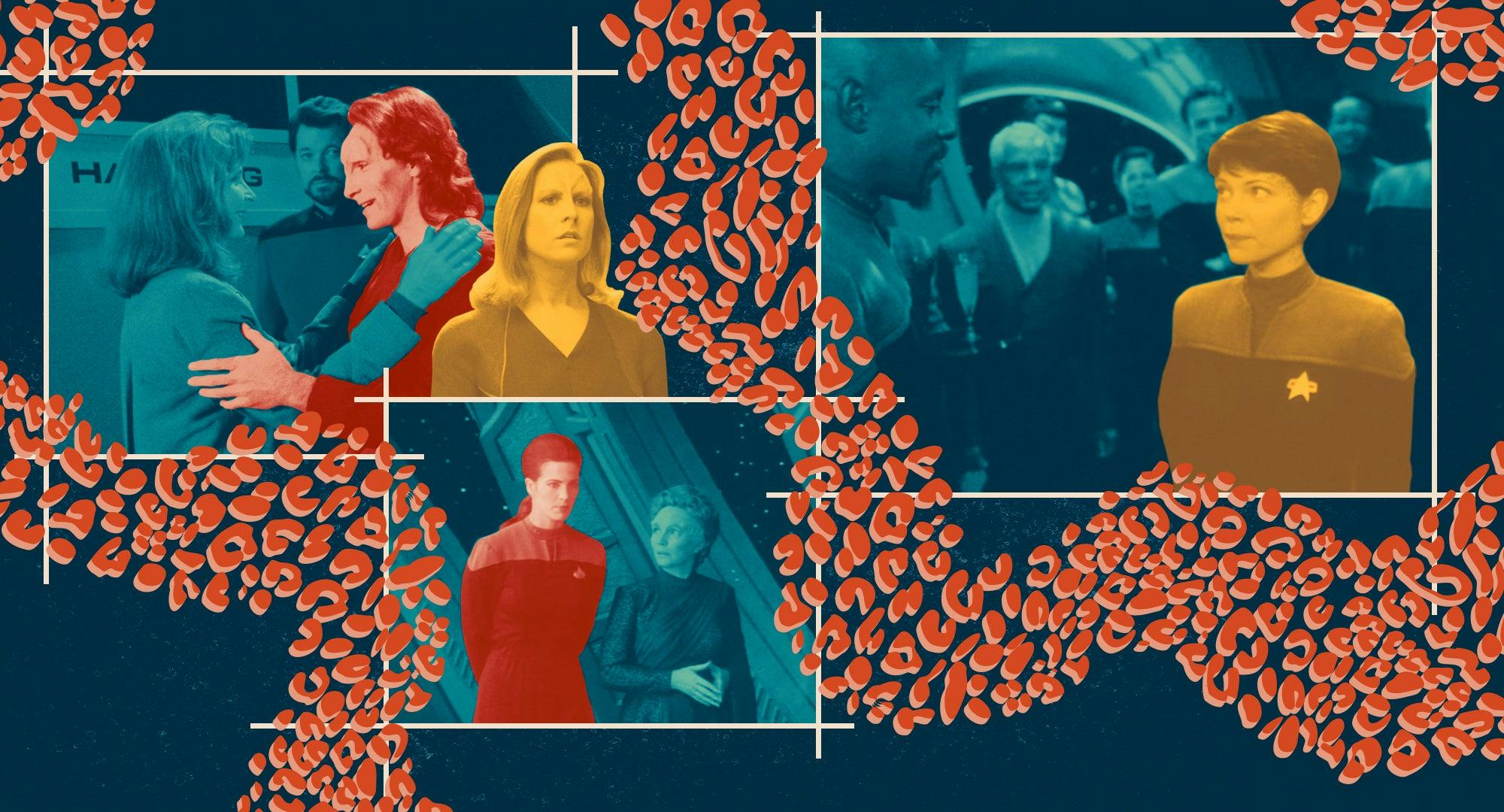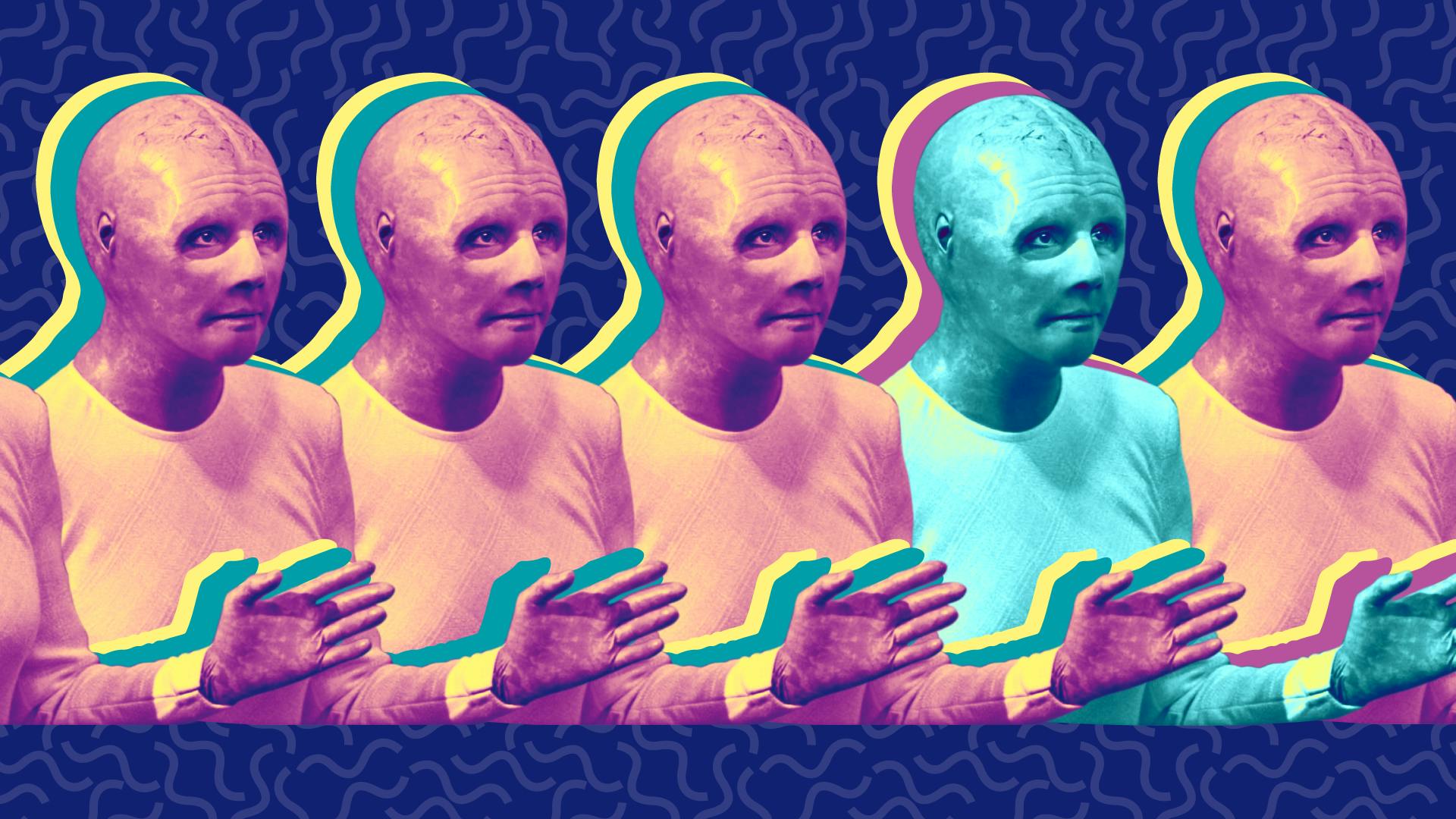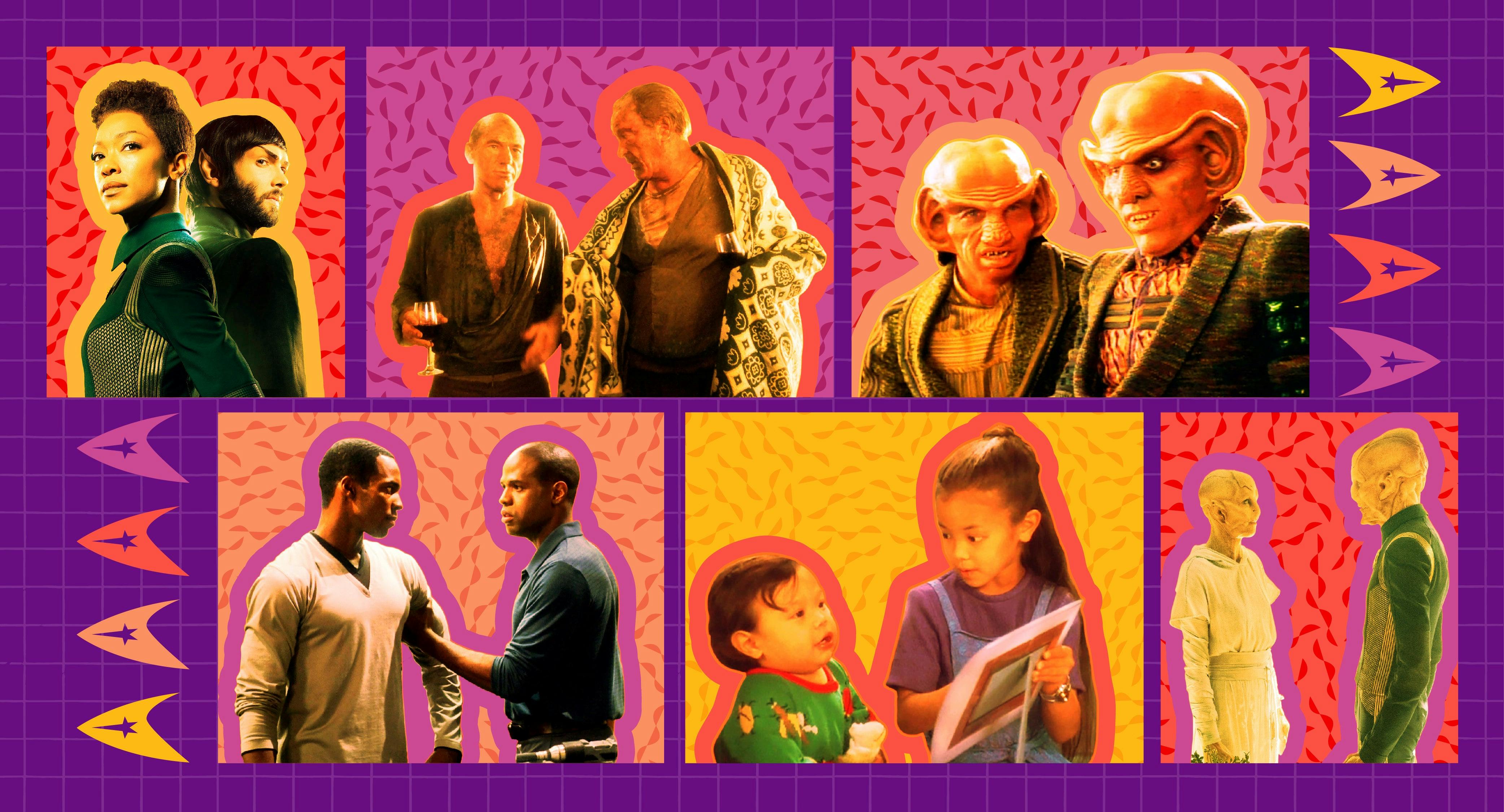Published Aug 4, 2023
Dynamic Duos: Lursa and B'Etor Duras
Dive in the sinister Klingon sisters' delicious history!
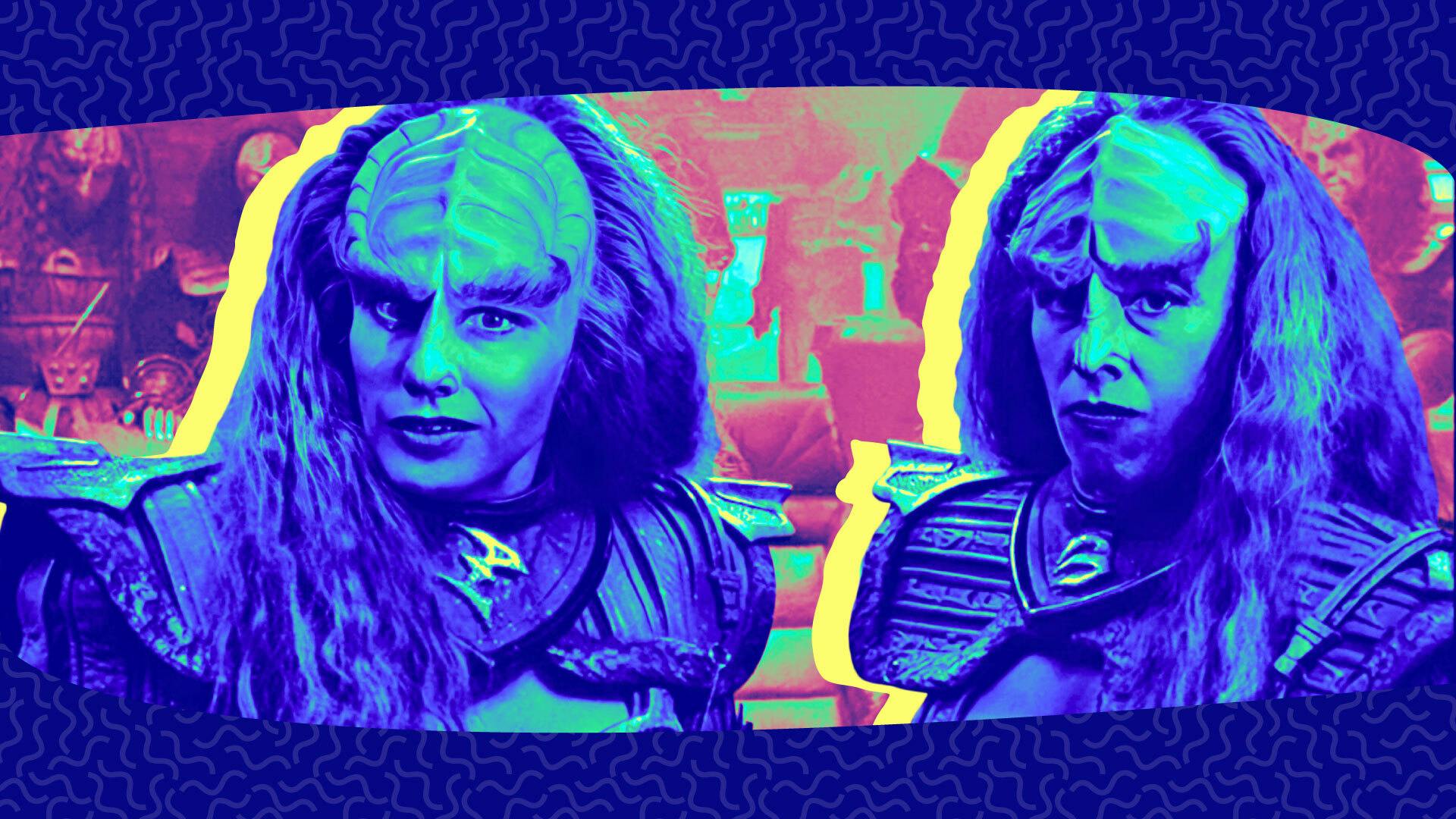
StarTrek.com
Who doesn’t love a good villain? Or in this case, a pair of villainesses? The Duras sisters — Lursa and B’Etor — may not be the first characters to come to mind when one thinks of Star Trek’s dynamic duos, but while they might be a less obvious choice, they’re certainly among the franchise’s most delightful pairs.
Lursa and B’Etor first appeared in the Star Trek: The Next Generation episode “Redemption, Part I” to challenge the Klingon Leader of the High Council, Gowron. Their brother, Duras, had previously tried to claim the position but died in disgrace after his and his family’s corruption was exposed. Lursa and B’Etor aren’t willing to give up so easily, though.
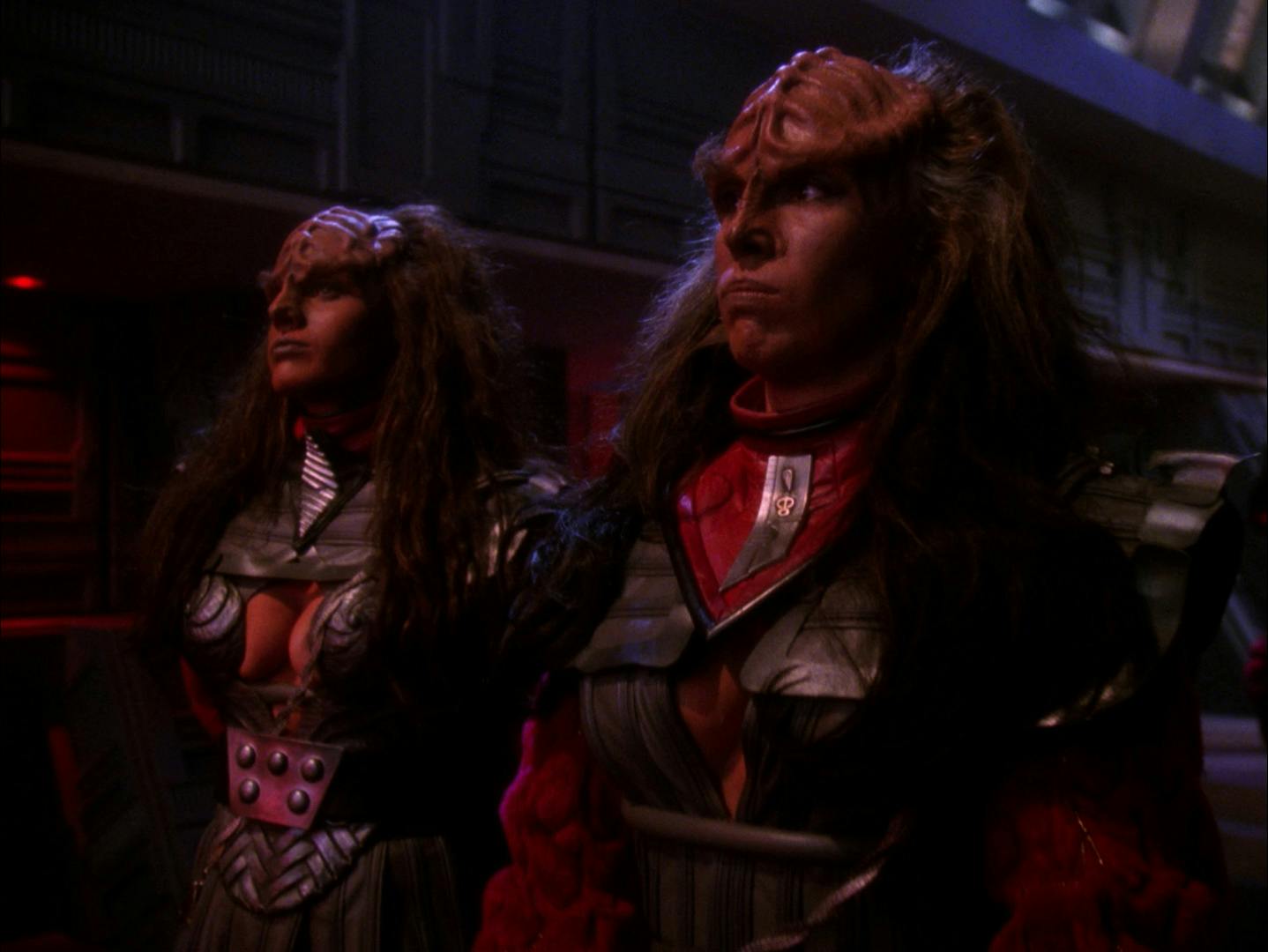
"Redemption"
StarTrek.com
Through their recurring appearances on The Next Generation, Star Trek: Deep Space Nine and Star Trek Generations, they doggedly pursue power over the Klingon Empire by any means necessary, with actors Barbara March and Gwynyth Walsh joyously chewing the scenery with every memorable appearance. They also become a recurring nemesis for Picard, who’d been named the Arbiter of Succession for the council and who’d rejected the House of Duras’ claim to leadership, and Worf, who’d killed Duras in a duel after the latter murdered Worf’s mate, K’Ehleyr.
While the Klingon civilization is built around ideals of honor, Lursa and B’Etor embrace corruption to achieve their goals by any means necessary. And boy, is it fun to watch them at their worst! Shamelessly scheming, cheating, and plotting, Lursa, with her snarling power hungriness, and B’Etor, with her unabashed use of her sexuality as a weapon, embody a rejection of what a Klingon woman should be. It makes them villains, sure, but it also frees them from the constraints of their society.
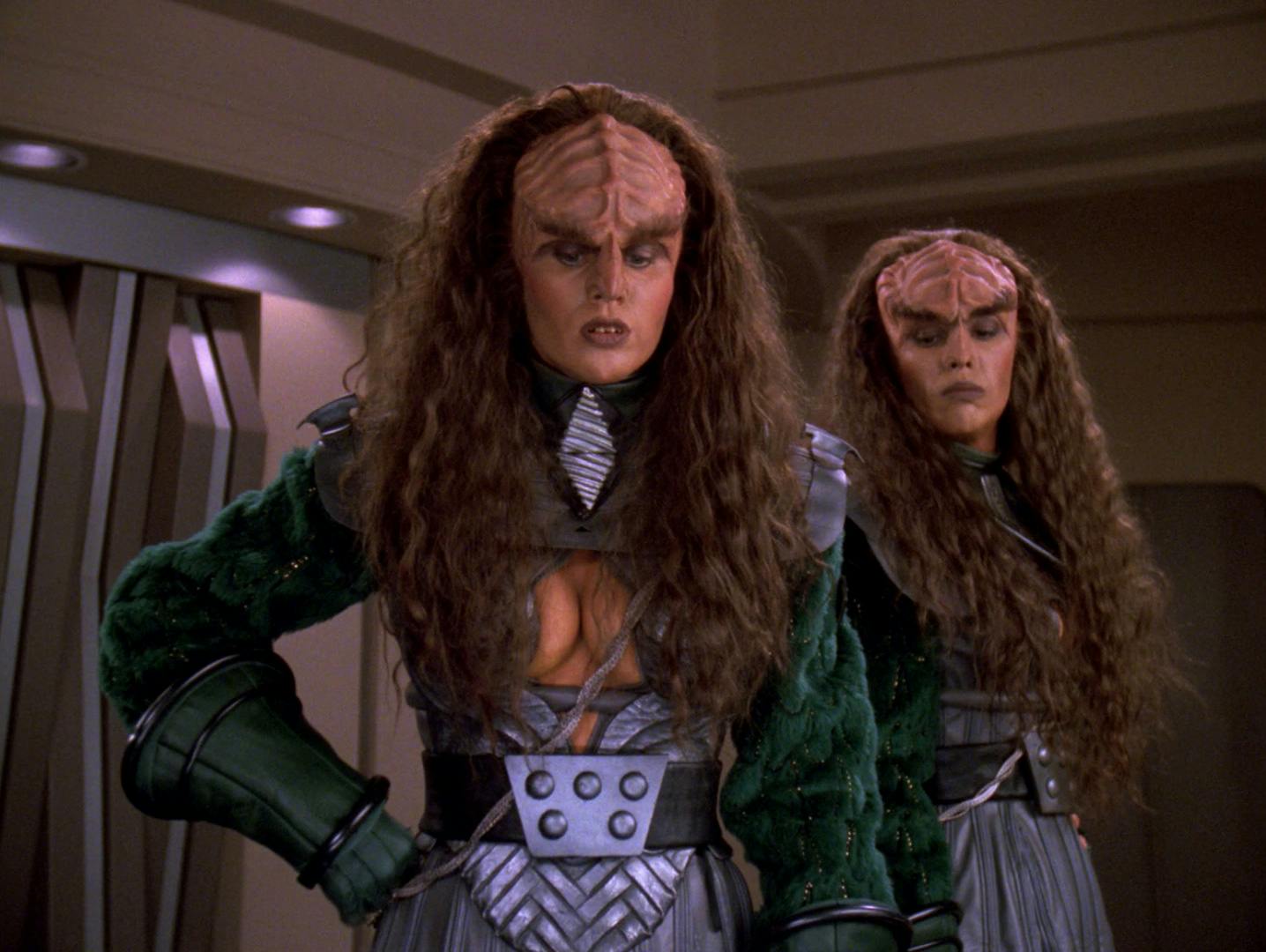
"Firstborn"
StarTrek.com
For all its futuristic technology, the Klingon Empire is decidedly retrograde in its views toward females. Klingon women may be strong, powerful and sexually liberated, but they’re ultimately still treated as second-class citizens compared to the men. The Duras sisters encounter this old-fashioned bias firsthand in their attempt to take over the Empire. After their brother’s death, they have no choice but to pursue power through another male relative, a teenaged illegitimate nephew, Toral, who was made the head of House Duras and inherited his father’s claim on the leadership position solely for being born male.
After that last attempt to claim power in an (at least nominally) legitimate way failed, it’s little surprise that Lursa and B’Etor turned to increasingly unsavory ways to seize power. Though their actions are despicable, I found it hard not to root for them a little. In a world where even powerful women are expected to be subservient to men, the Duras sisters embraced their independence in all its glory and weren’t afraid to use men as tools to get what they wanted. They let nothing hold them back — not circumstances, not morality, not traditions, and certainly not the odds. Their scheming may have been undone in each episode (and in the film) they appeared in, but they never let that stop them or even slow them down.
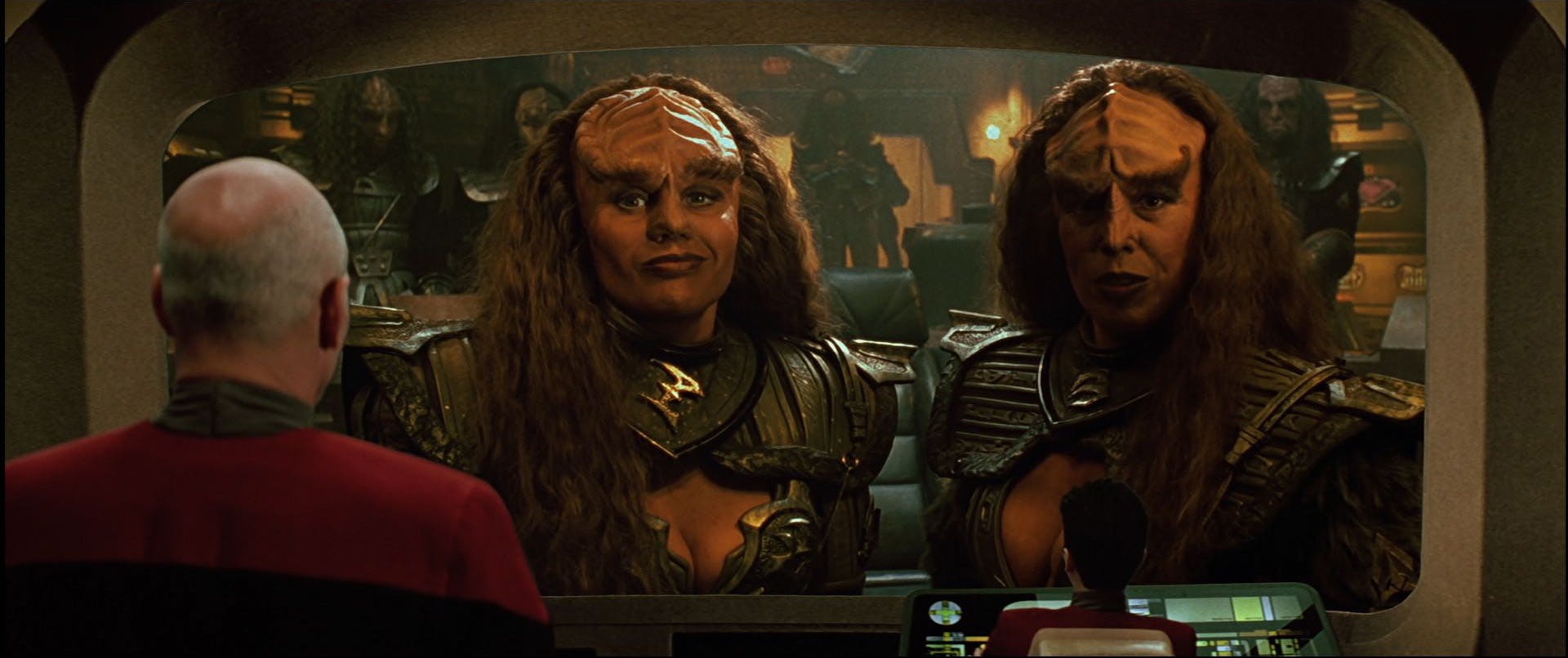
Star Trek Generations
StarTrek.com
It was refreshing to see a pair of women in positions of power working together to achieve a common goal, even if that goal made them the bad gals. As I’ve written about before, female friendships have historically been underrepresented on-screen (something Star Trek’s been rectifying since Deanna and Beverly started hanging out in the late ‘80s). The Duras sisters may have antagonized the Federation, the Klingon Empire, and the-Prophets-know-who-else, but they were always in sync with each other.
Lursa and B’Etor’s dogged, whatever-it-takes approach to their pursuit of power and revenge — and their brazen willingness to wreak havoc along the way — ultimately proves to be their undoing. But let’s not mourn them as just another set of villains brought down by the good guys of Star Trek. Let’s celebrate them for the strong-willed, clever, relentless and delightfully wicked rebels that they were.
This article was originally published on January 21, 2019.

